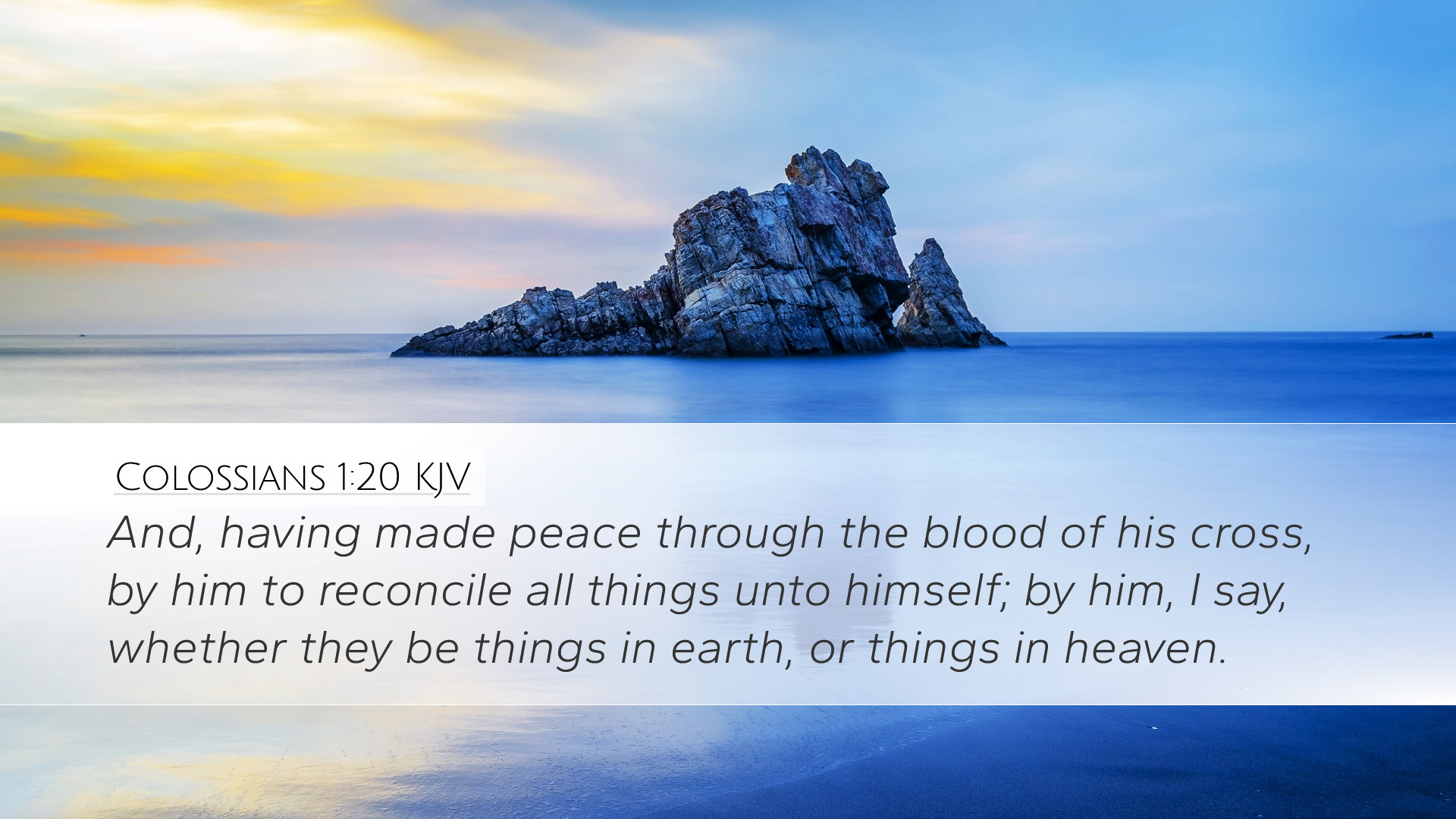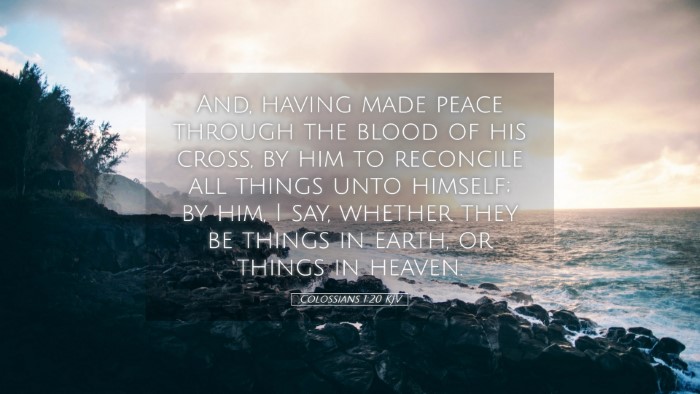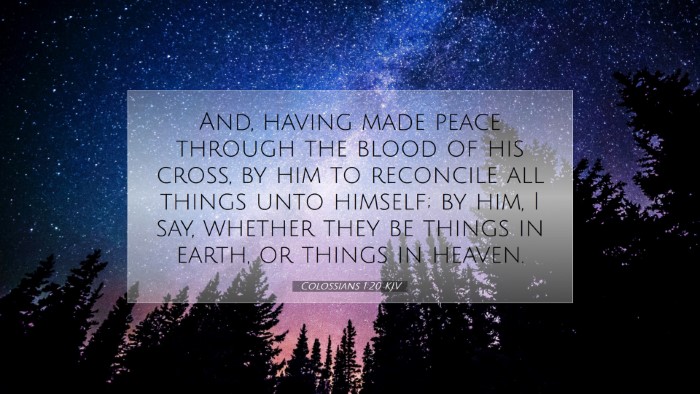Commentary on Colossians 1:20
Verse: "And, having made peace through the blood of his cross, by him to reconcile all things unto himself; by him, I say, whether they be things in earth, or things in heaven."
Introduction
The verse of Colossians 1:20 dives deep into the essence of Christ's redemptive work. The Apostle Paul emphasizes the peace achieved through Christ's sacrifice and the reconciliation of all creation to God. This commentary combines insights from renowned public domain theologians, providing a unified perspective on this monumental passage.
Contextual Overview
Paul writes to the Colossians amidst challenges to the doctrine of Christ, confronting false teachings that could undermine the sufficiency and supremacy of Christ. Their understanding of Christ’s role in salvation and reconciliation is crucial, making this verse particularly significant in affirming the centrality of Jesus in God’s plan for creation.
Theological Implications
1. Peace Through the Blood of His Cross
Matthew Henry notes that this peace is not merely the cessation of hostilities but a profound reconciliation that restores the order of creation. The blood of Christ signifies the costliness of peace, implying that divine justice has been satisfied through sacrifice.
Albert Barnes elaborates that this peace is accomplished by the vicarious atonement of Christ, signifying that humanity has been at odds with God due to sin. The cross, rather than being a symbol of defeat, becomes the powerful emblem of restored harmony between the Creator and His creation.
2. Reconciliation of All Things
Paul indicates that the scope of Christ's reconciliation is extensive. According to Adam Clarke, "all things" encompasses not only humanity but also the spiritual realm and all aspects of creation. This suggests a cosmic significance of Christ’s redemptive work that reaches beyond the salvation of individual souls to the restoration of all creation.
Cosmic Reconciliation
Henry points out that the reconciliation should also aim at the restoration of harmony within creation itself, implying a future where sin's effects are undone. Clarke notes that the reconciliation affects both "things on earth" and "things in heaven," indicating the breadth of Christ's Lordship and authority over both realms.
Key Observations
- Nature of Peace: Peace denotes a profound, relational state rather than mere absence of conflict.
- Universal Scope: Reconciliation extends beyond humanity, offering implications for the entire cosmic order.
- Role of the Cross: The cross remains central; it is through the sacrifice of Christ that peace is enacted, highlighting the gravity of sin and the depth of divine love.
Practical Applications
1. The Necessity of Christ's Sacrifice
This verse reminds pastors and theologians of the serious nature of sin and the dire need for reconciliation with God. It calls the church to reaffirm the centrality of the cross in the message of the Gospel.
2. Implications for Creation Care
The overarching theme of reconciliation suggests a responsibility for believers to care for creation, aligning with God’s intent for a harmonious world. As representatives of Christ's peace, Christians are called to promote restorative practices in all aspects of life.
3. Assurance of Peace
For students and scholars, the assurance of peace through Christ’s blood provides comfort in their theological studies and personal faith journeys, reminding them that they have been made right with God and can approach Him with confidence.
Conclusion
Colossians 1:20 presents a profound theological assertion of peace and reconciliation through the cross of Christ. Drawing upon the insightful views of Matthew Henry, Albert Barnes, and Adam Clarke, we recognize the transformative implications of this verse for individuals, the church, and the created order. It challenges believers to embrace the peace made possible by Christ, reflecting it in their lives and pursuits toward a reconciled and restored creation.


